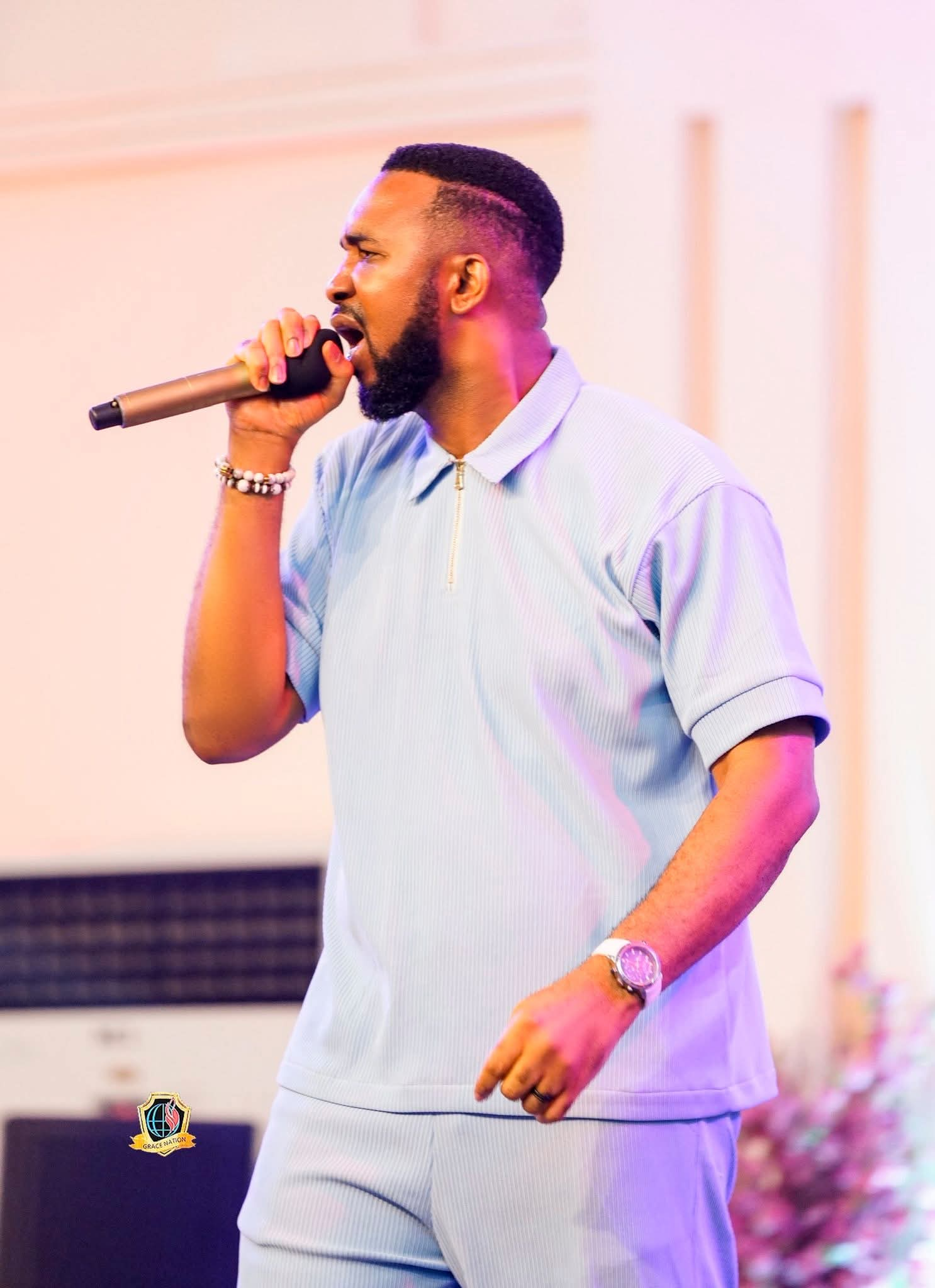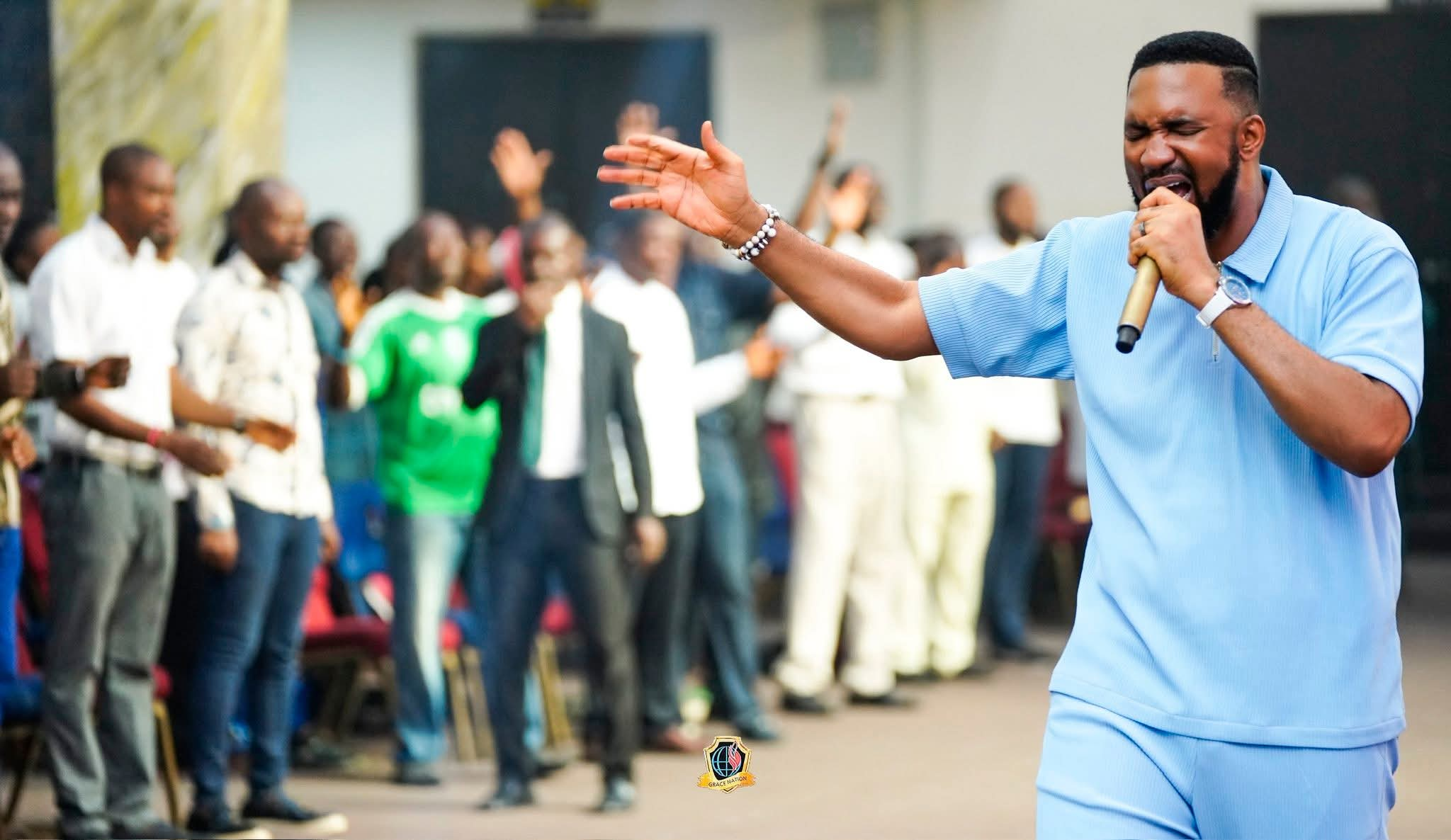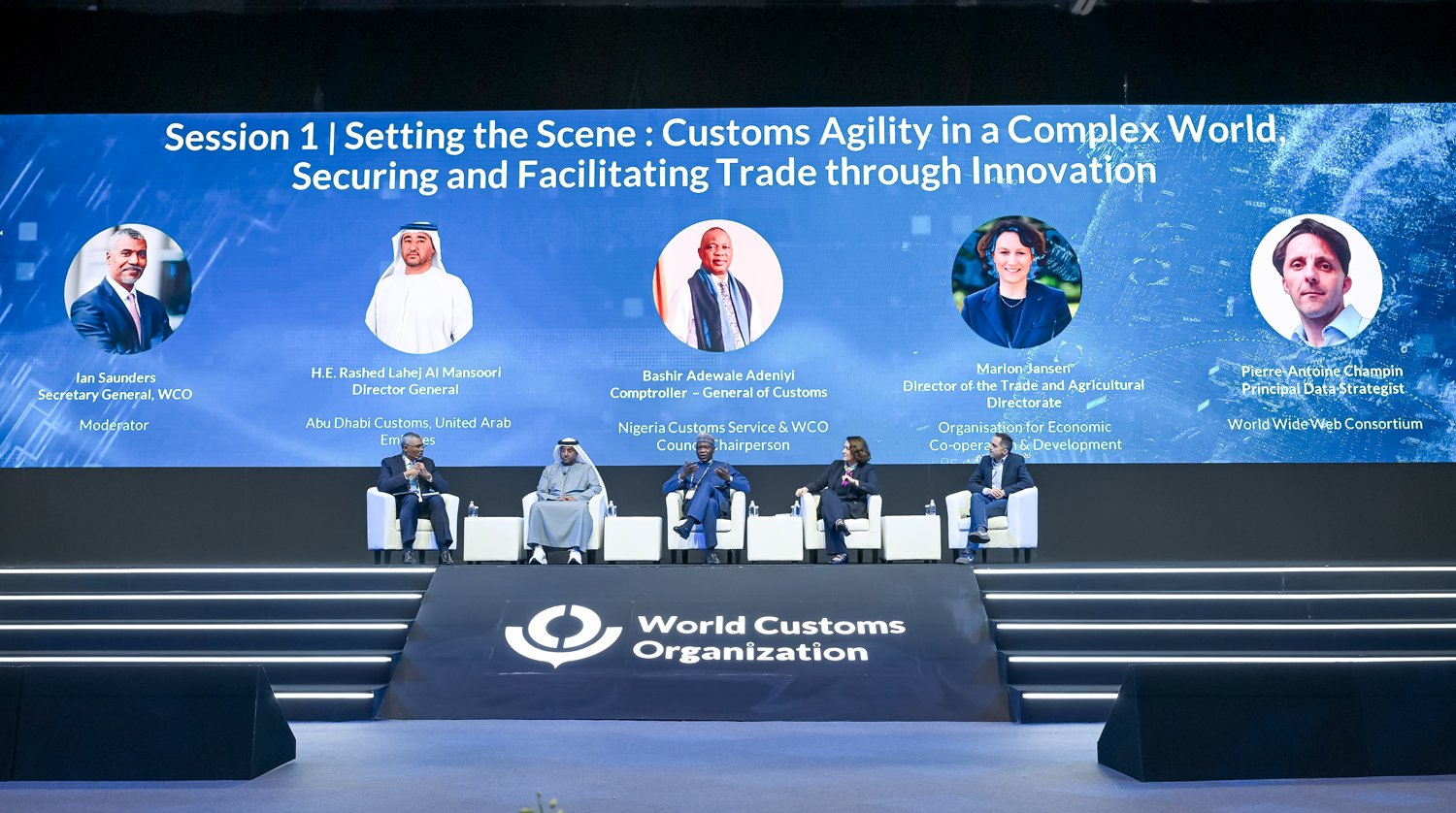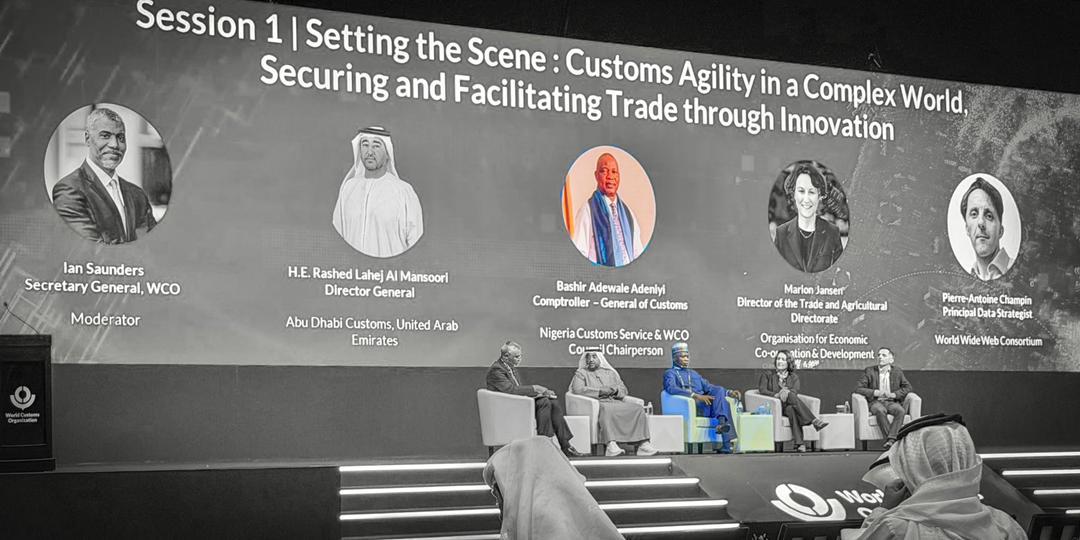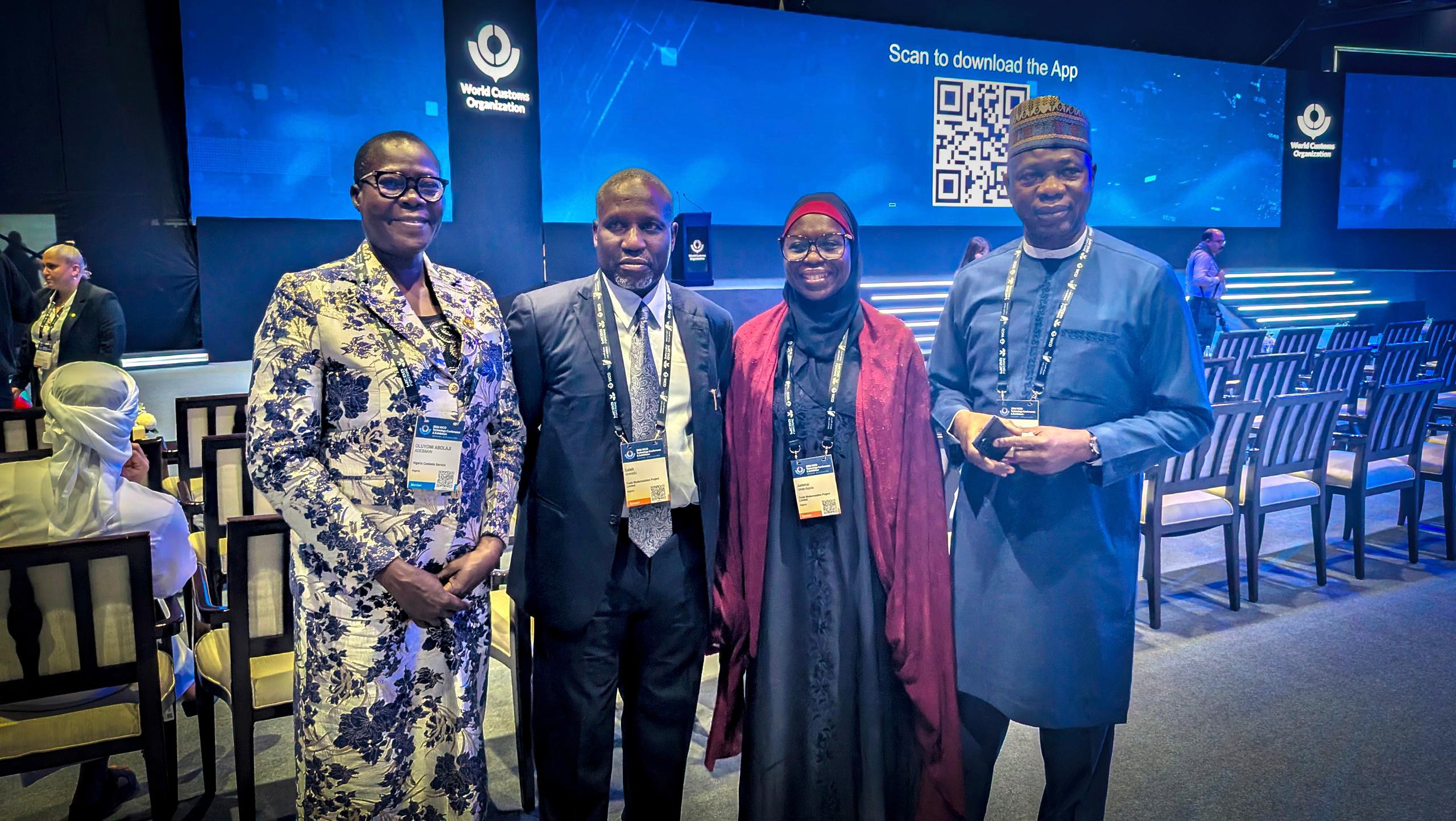Uncategorized
Bridging the Gap, Dr Anthony Aduro’s Vision for World-Class Healthcare in Nigeria”
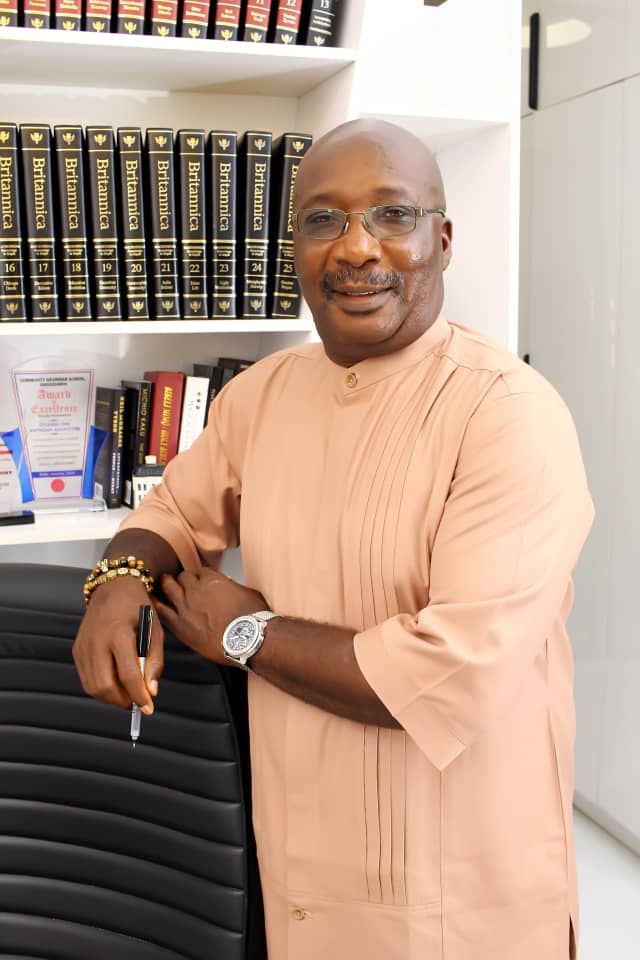
Bridging the Gap, Dr Anthony Aduro’s Vision for World-Class Healthcare in Nigeria”
In a nation grappling with an ailing healthcare system, Dr. Anthony Aduro, a dedicated healthcare practitioner and CEO of Aduro Foundation, is emerging as a beacon of hope. Driven by a deep-seated passion for improving the lives of his fellow Nigerians, Aduro is spearheading a transformative approach to healthcare in Nigeria.
In a media chat the CEO noted that the Nigerian healthcare system is a mess, urging the government to
invest in healthcare infrastructure and partner with private sectors.
As a healthcare professional, Aduro explained that he witnessed firsthand the challenges faced by patients in accessing quality care, noting that the lack of adequate infrastructure, limited resources, and the prevailing apathy towards healthcare among government officials fueled his determination to make a difference.
He said: “The state of healthcare system in Nigeria is saddening, about 80 percent of Nigerians
use the general hospitals where you sometimes go and see patients sharing bed space, some of them not properly equipped.
“That is why I have a lot of interest in the healthcare system in Nigeria, and I’m putting in efforts to develop something where we can have an impact that if other people see, they can actually assist in building the health sector of the country.”
Speaking on some of his significant milestones in the healthcare of Nigeria, he said: “During the #EndSARS protest, my home town was affected. The healthcare centre there was demolished, and I reached out to the local government chairman, and they took me there. So, I rebuilt it, and equipped it, and I told them that it should be for the community. I thank God, a lot of things are going on there, it’s like a mustard seed; something that is small, but it will still grow and I still intend to build more health centres so that a lot of people, especially the low income earners will benefit from it.”
He disclosed plans to facilitate medical outreach in underserved communities in Okitipupa, Ondo state, where he hails from and also employ manpower to drive the growth of the healthcare sector.
In light of the above, the healthcare practitioner outlined strategies to revamp Nigeria’s
healthcare, including partnership with the private healthcare sector; Creating insurance systems for low-income earners; Investing in healthcare infrastructure; Telemedicine solutions.
“Telemedicine is one of my areas of research. Telemedicine is where you can still have the doctors and nurses in the US, and they can still treat you here,’’ Dr. Aduro explained.
Speaking on some of his philanthropic activities, he stated “I believe so much in a clean environment. When the environment is clean and you have some clean water, you are solving some problem that you don’t even know is there.”
Aduro explained that he has drilled a solar powered clean borehole water in seven villages including Okitipupa, Oloto, Ilumeje in Ondo State, noting that his core objective is to set a pace that others can emulate, and create employment opportunities.
“I was there at the commissioning of the town hall that I built and that was where one of the community members proposed to donate books for the students. That was the time I promised them that I’m going to build a library for them, and today, I opened the library and it cost N150 million. The library is an ultra modern one, powered by solar energy,” the healthcare practitioner noted.
Aduro believes that giving back doesn’t have to be monetary, stressing the need to create lasting impacts through job opportunities and infrastructure development.
The CEO noted that the Aduro Foundation was established to transform life through community empowerment, and creating opportunities. He noted that the core objective of the foundation is just to give back to, and have an impact on the community.
“You have to be creative when you want to give back to the community. It doesn’t have to be money, rather let it be something that will create a lasting impact. For example, if you create job opportunities, where you employ people, they will take care of others which gives ride to multiple effects. Giving back to the community entails making sure that something which will positively impact their lives is happening and it is continuous. It will not be one-off,’’ the CEO noted.
Speaking on his farm project, Aduro Farm, he explained that he got the idea while thinking of a way to reduce unemployment in Nigeria and boost sustainability.
He said: “It is just like creating an opportunity economy for people to get employed, and some people will have the opportunity to trade and do businesses with it. It is a highly mechanised farm, and there are staff working there. There are close to 60 people working there.
“We’re building a large piggery farm right now. We have a poultry pen that will take about 20, 000 layers. We have a fish outdoor pond that will probably take up to half a million fishes, we have about 15 people working there. And then you see people doing business, for instance we have egg sellers coming to buy eggs and resell them,’’ he added.
Dr. Aduro’s philanthropic endeavours are driven by a belief in the power of community-based solutions. He emphasises the importance of creating lasting impact through initiatives that empower individuals and communities. By providing access to healthcare, clean water, and economic opportunities, Aduro’s foundation is helping to build a more resilient and equitable Nigeria.
The CEO expressed optimism over the future of healthcare in Nigeria. He believes that
with the right investments and a commitment to community-driven solutions, it is
possible to transform the country’s healthcare system and improve the lives of millions
of Nigerians.
On how his upbringing influenced his present personality and values, he said: “My upbringing was very humble. It takes a community to raise a child. I was raised within a community and that influenced me because I love to have people around me. I was surrounded by people while growing up and I saw the knowledge my mother and father impacted on me on how I have to be nice to people. With that at the back of my mind, I grew up within a very large family comprising uncles, aunties, cousins etc while in Okitipupa and that influenced my upbringing, I really respect the communal life, I can never go away from that, and then the influence I saw within the community is what actually brought me to where I am today. Whatever I am doing or what I am trying to do, that community influence will always come into it and I can never forget that community which I grew up from.”
Educational background
“I attended St. John RCM School, it is a Roman Catholic school that time. I later moved to Joala, where my father was working then. I later moved Saint Columbus RCM School. After graduating from there, I think that should be around 1975 or 1974 or thereabout, I then moved to Modern School, from there to Local Authority Modern School at Okitipupa for three years, after that I went to Government Secondary School, Idanre.
“During that time, things were tough for me. I think the secondary school fees that time was less than N500 per year but it was a tough thing to pay but my parents tried. My mother had to sell her propperties put things together for myself and my siblings to go through secondary school. After my secondary school, I go admission to read anthropology in Maiduguri and I really did not like it because I have interest in health.
“I was actually thinking that I should be a doctor, which was my dream, because if I am a doctor I will be able to give something back to the society; I would be able to take care of other things at home but it did not walk out that way. I went to a technical school, it is more of an engineering school that time but it was a private school. I was there for one year but things were not going like I wanted it.
Going to India
:The purpose of my travelling to India was for education. It was hard in India, very tough, I left Nigeria with $100 that time. During that time, you can only take $100 out of Nigeria and then but being a strong headed person, I went through a lot of things in India. When I got to India, it became so difficult even that $100 was stolen from me because we were placed in a dormitory, like an hostel. We were like 16 of us in the hostel. Before I could register, the money was gone. But I thank God, I went to a church and I told them what happened to me because my passport was stolen also. Then a church community in India, though they are Hindus. The church community gave all they could, their offerings, everything like that, they gave it to me. Till now, that thing never left my memory because when people come together to give you a purpose for life, it will ever stay there.
“That is how I started. I went to Nigerian embassy, I got a little money, I was able to register for college because didn’t register for the university in Belgrade and I couldn’t go to medical school there. I have to go to a Business school. So I got myself into commerce and then I moved to the central part of India, that is Mapal, where I graduated with a Bachelor degree in Commerce and Accounting after which I did Master’s degree in Business and Commerce. But health was still very much in my head.
Why I moved to Kenya
I moved to Kenya for educational purpose. That was where I thought I can survive. there was no job, so we were looking for a best way to survive. I am very entrepreneurial. I have a lot of Kenyan friends when I was in India and from there I knew what was going on there. They are so much involved in coffee and tea export and I got into horticultural export in Kenya. My wife is a Kenyan. I went there to see if I could see a better opportunity rather than going into a main stream employment, maybe I could actually create employment, that was why I set up the horticultural export in Kenya. I did it for a while, exporting to France, UK and Italy. It was very competitive then because I was competing with Indians. Indians were exporters and importers, I didn’t make much in Kenya at all. It was tough.
My sojourn to USA
Things were becoming so difficult, the competition was very high, I love to be in competition but it was very higher for me. The Kenyans and Indians dominated the economy and for you to be able to be successful you have to go through them. The Kenyans and Indians fixed the prices for everything, prices that you are going to use to export and that is only price you’re going to use to export unless you have other means of getting your own deal from London or France or so.
When it was becoming so difficult I just have to move on and I said I would be focused on my dream. It was not because of education that I moved to US, I moved because I was looking for a better opportunity. So when I got to the US I have to start from scratch, that is what a lot of people don’t know. It doesn’t matter who you are or where you are coming from or something like that, America will humble you, whether you have Ph.D or whatever you have, you’ll start from the scratch.
The American dream
“The American dream is always there, if you open your eyes, if you are determined, then you are very committed to what you are doing, straight forward, you’ll make it. You can be who you want to be and that is what is there. So,m I got into US and then started working in the healthcare sector. I was employed just like a programme kind of something, to co ordinate programmes within the health sector. “I was in finance, I had a Master’s degree in Finance from India but when you can coordinate programme, it doesn’t mean you are practising. You coordinate programme like the finance part of it, although that is in the heath sector. Then I have to start changing my ways. That was when I developed interest in how the health system works, like how to take care of aged and disabled people, people with disabilities, like autism, various types of disabilities. It is a different sector of health care system that actually focuses on human not on symptoms or treatment. It focuses on you and your health outcome. So healthcare is a big field where you have the physician and co.
“So I got into that and I started developing, I was actually growing in the heath sector. I became the residential manager for healthcare system which was Anthony Wince Services in Texas, Houston then after working in Houston about two years, I moved to Forthwin, Indiana through one pastor from Zambia. We got talking and he said “if you are in this sector, you can get something better in Forthwin in Indiana.” And he spoke with a friend of mine from South Africa. He spoke to Anthony Wince Services. It is one of the biggest health care providers for people with age and disabilities. That was in year 2001. That time I was made a programme coordinator for a sector of heath care, that is residential service of people with disabilities.
“That was what led me into the healthcare education. I moved from there and then I also have a doctorate degree in health care from World University in Minnesota. I grew up and I saw what I was doing there, I have to set up my own. I grew up to the policy level when we started doing policy for Anthony Wince Services now called Benchmark and from there I kind of broke out and started my own called Medị-link. That was the very first aspect of it, it is the first amputatery kind of services that deal with the people leaving with disabilities. I was able to talk to the state of Indiana that I have a better policy on healthcare sector and I was told to bring a proposal.
“That was why I was saying that your dream is possible, the American dream, if you are focused but the idea is that you have to be humble, because whatever the case, you are going to start from zero. It doesn’t matter what and how you are and then. I put my proposal together and it was approved. I started my own healthcare operation system in 2013
Have you been intimidated or were you affected by racism which is usually in practice?
“First of all, I don’t feel intimidated. I remembered one time in 2003 when I was a programme coordinator for Benchmark and we would go for healthcare. the entire hall would be filled and I would be the only black person there. Racism is something that cannot be taken away but you can actually create an opportunity from racism. That is what led me to where I am today, when you use that kind of negativity to create a positive thing for yourself. When you are able to modify the thinking and make use of the best of racism.
Any particular incident when you were in the US Healthcare sector, you were subjected to any form of racism before?
“It is like an unmentioned racism, it is something that you feel and know. There were a couple of times that, I think 2005/2006, I was supposed to be a programme director of a major programme for the healthcare system, we were five of us that were there and I was the most qualified when it comes to that aspect but things moved here and there but I am very grateful for the organisation.
“Everything I am able to build up on my own, it is because of that issue of racism. I won’t say it is a big issue but it has always been there, you’ll feel it. You know, the position you are supposed to get, you’ll probably not get them. There are so many people that I have trained that they will put on top of me. “Those are areas that I told myself that there must be opportunity in this thing. If I can train this person to be in this position, I can actually step out and create opportunities for myself
Regardless of who you are or the colour you are, you can achieve the American dream. It might be difficult but you can always achieve it.”
news
Ramadan 2026: Let’s Be United, Shina Akanni Urges Muslims.
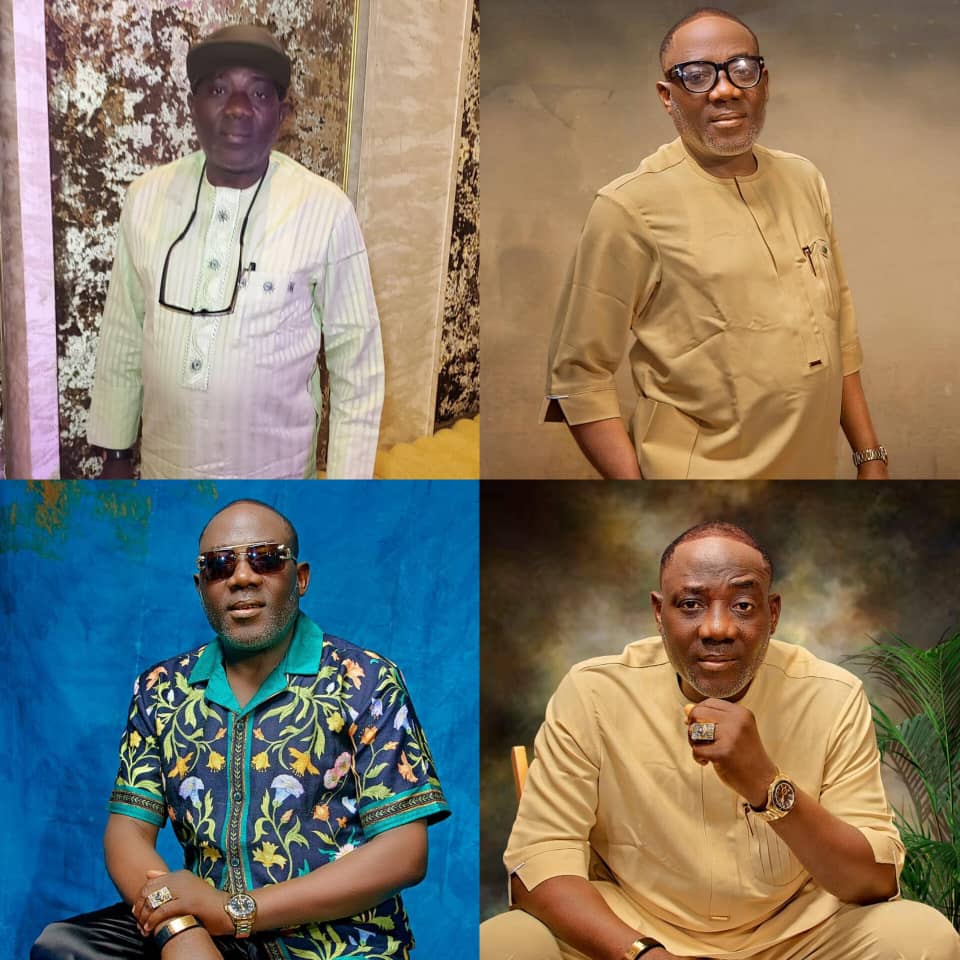
Ramadan 2026: Let’s Be United, Shina Akanni Urges Muslims.
As Muslims all over the world begins the 30 days compulsory fasting and prayer today,top Fuji Musician Aare Sir Shina Akanni Aroworeyin Scorpido has congratulates them for witnessing another month of Ramadan.
Akanni advised them to follow the teachings of the the Holy Prophet Muhammad (SAW) which is peaceful co existence among themselves and their neighbor ‘because Islam is Religion of peace”.
He said the month of Ramadan is an holy month therefore Muslims should try as much as they can to maintain peaceful coexistence among themselves and others and that they should see themselves as ambassador of peace.
While praying for Nigeria,Aare Sir Shina Akanni Aroworeyin Scorpido said he believes that there will be an economic turnaround soon because what’s is happening now are signs of thought times that never last “if we can pecevere things will get better”.
The Scorpido crooner who recently released a hip hop single titled “Magbelo” said he is currently working on a complete album which will be released before the end of the year.
Aare Sir Shina Akanni Aroworeyin Scorpido whose last album ‘ABCD” is still in hot demand said that his next album will be a pot pouri of all kinds of music because his brand of Fuji music is a blend Fuji , Hip-hop,Apala ,Highlife and others.
Uncategorized
The Enemies Within: Jonahs Are Not Manageable — Dr. Chris Okafor
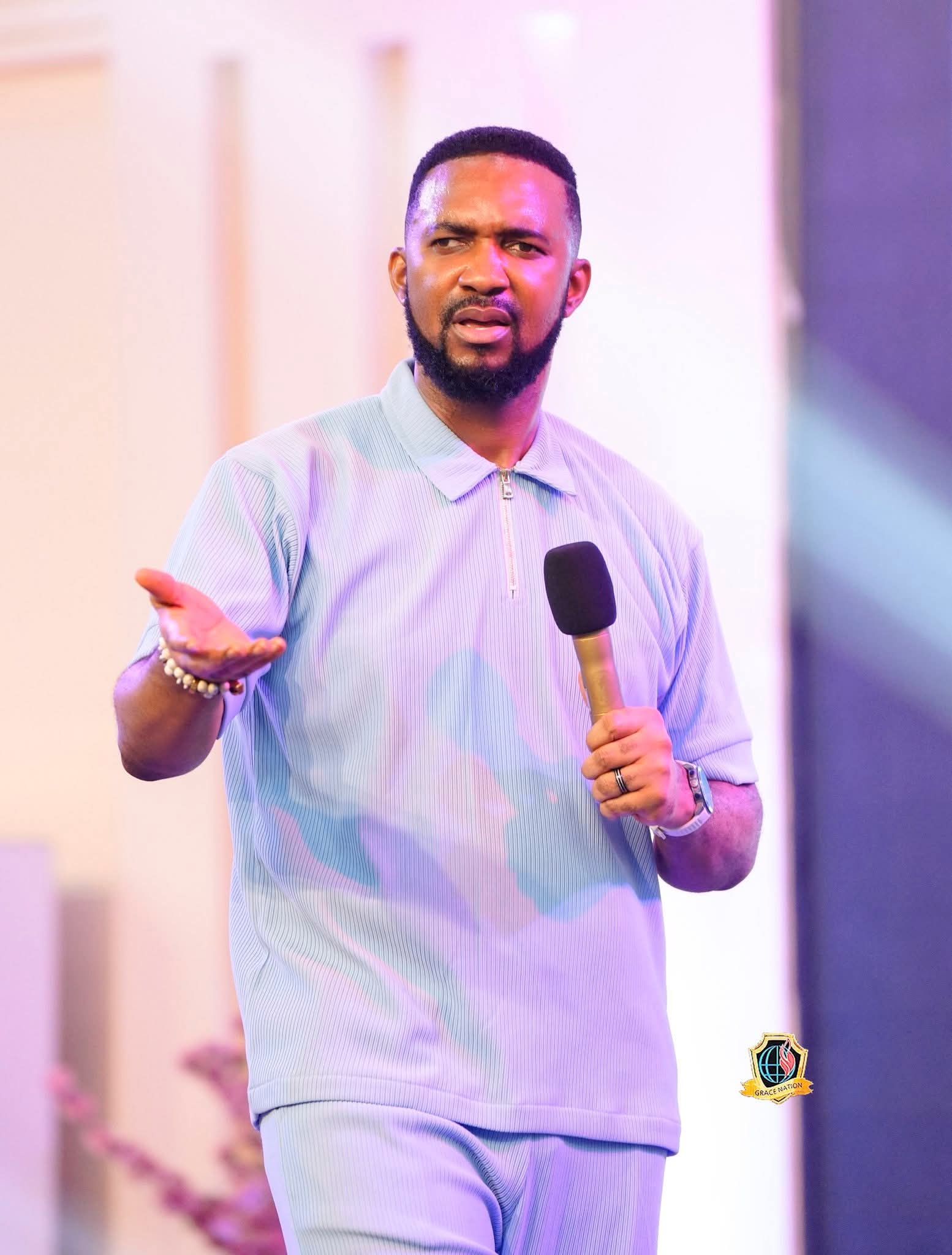
The Enemies Within:
Jonahs Are Not Manageable — Dr. Chris Okafor
…….“To remove Jonah, you must bring Jesus into the matter.”
When a “Jonah” enters a person’s life, confusion, gossip, blackmail, betrayal, and the pull-him-down syndrome often follow. But the moment Jesus Christ is invited into the situation, the storm subsides and stability is restored.
This was the central message delivered by the Generational Prophet of God and Senior Pastor of Grace Nation Global, Dr. Chris Okafor, during the midweek non-denominational Prophetic Healing, Deliverance and Solutions Service (PHDS) held at the international headquarters of Grace Nation Worldwide in Ojodu Berger, Lagos, Nigeria.
The Clergyman also declared that Nothing Happens Without Spiritual Influence
In his sermon titled “The Enemies Within,” Dr. Okafor declared that nothing happens without spiritual involvement. According to him, every visible battle has an invisible root.
Referencing the biblical story of Jonah, the Man of God explained that Jonah’s presence on the ship gave access to a contrary spirit that tormented everyone onboard.
Despite the losses suffered by innocent traders and sailors, the storm persisted because of one man’s disobedience.
However, he noted that when Jesus speaks into a situation, every storm must obey. Just as Christ rebuked the storm and it ceased, so too will the storms in believers’ lives subside when He is invited into their “boat.”
*The Impact of a Jonah*
Dr. Okafor further emphasized that “Jonahs” are difficult to manage. When such individuals are present in one’s circle, progress becomes delayed.
What should ordinarily manifest quickly may be prolonged or frustrated because someone close—someone who understands you deeply—may be operating as a spiritual adversary.
He explained that negative narratives, unnecessary battles, and unexplained setbacks often begin when a “Jonah” gains access to a person’s inner circle.
*The Solution*
“To remove Jonah from the boat of your life,” the Generational Prophet declared, “you must invite Jesus Christ into the matter.”
According to him, when Jesus takes control of the boat, the plans of the enemy are overturned.
What was designed for downfall becomes a testimony. No storm or battle can succeed where Christ reigns, and the enemy is ultimately put to shame.
The midweek service witnessed a strong prophetic atmosphere, with the power of God evident through deliverance, restoration, and divine revelations.
The Generational Prophet ministered deeply in the prophetic, calling out names, villages, and addressing alleged spiritual strongholds, as many lives were reportedly restored—all to the glory of God.
By Sunday Adeyemi
Uncategorized
FROM BORDER TO MARKETS: HOW NIGERIA’S REFORMS ARE REWRITING AND MODERNISING TRADE FACILITATION By O’tega Ogra
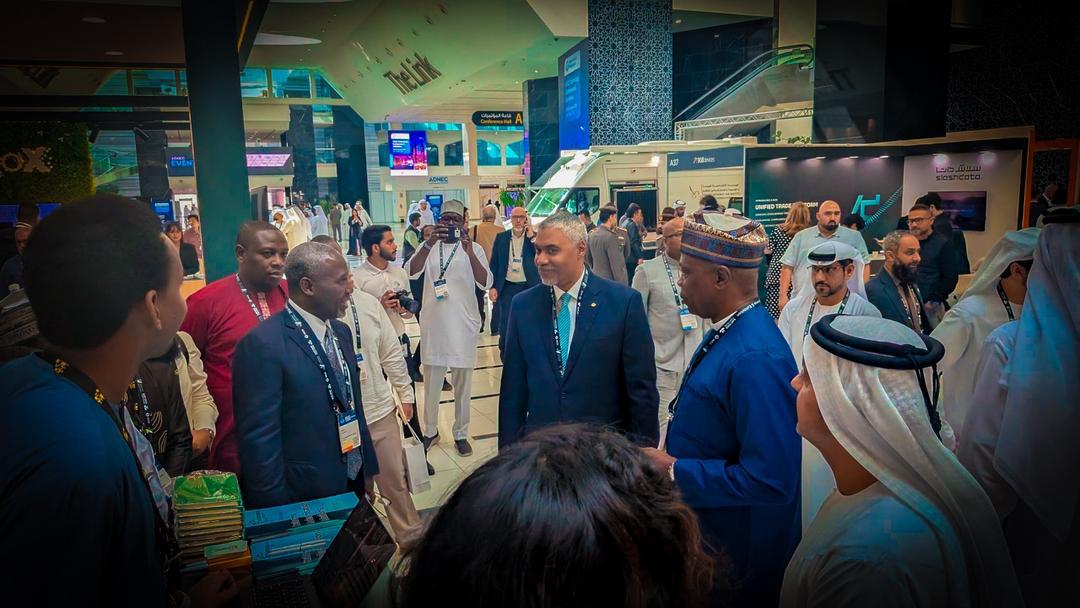
FROM BORDER TO MARKETS: HOW NIGERIA’S REFORMS ARE REWRITING AND MODERNISING TRADE FACILITATION
By O’tega Ogra
On the surface, the 2026 World Customs Organization (WCO) Technology Conference in Abu Dhabi, held in the last week of January, followed a familiar script: flags, formal sessions, carefully worded speeches. But beneath the choreography, something more consequential was unfolding. As customs chiefs and trade officials compared notes on the future of borders, Nigeria arrived not with theory, but with a working proposition.
The Nigeria Customs Service (NCS) Modernisation Project, being implemented through Trade Modernisation Project (TMP) Limited, unveiled to a global audience of customs administrators and policy leaders a window into how Africa’s largest economy is confronting one of the most complex challenges in public administration: reforming the machinery of trade while it is still running.
For decades, customs reform was treated largely as a technical exercise—frequent patches here, shoddy fixes there; new software in one corner, revised procedures in another. Nigeria’s presence in Abu Dhabi signalled something different. TMP Limited, working in partnership with the NCS, advanced the argument that trade is a cornerstone of economic development and must be supported by organic, sustainable partner ecosystems. Such ecosystems deliver speed and trust, revenue and credibility, and secure borders without stifling commerce.
That argument resonated in a room increasingly aware that global trade is no longer defined solely by tariffs and treaties, but by data, interoperability, and the quiet efficiency of systems that simply work.
The annual WCO Technology Conference has, in recent years, become a barometer for the direction of global trade governance. This year’s discussions reflected a shared anxiety: supply chains are more fragile, compliance risks are rising, and governments face mounting pressure to collect revenue without discouraging investment. Customs administrations now sit at the intersection of all three.
Nigeria’s response has been to attempt a full reset.
At the heart of this effort is the NCS Modernisation Project, implemented through a Public-Private Partnership (PPP) arrangement with TMP Limited as the concessionaire. The project seeks to replace fragmented technology deployments and manual processes within the Nigeria Customs Service with a single, integrated framework. This is anchored on B’Odogwu, a Unified Customs Management System (UCMS) that brings together cargo clearance, risk management, payments, and inter-agency collaboration. The ambition is sweeping—and so are the stakes.
Alhaji Saleh Ahmadu, OON, Chairman of TMP, framed the initiative as nothing less than an institutional reconstruction, designed to position the NCS at the forefront of global customs administration technology, aligned with international standards and assurance frameworks.
“Digital trade modernisation is not just about upgrading systems,” he told participants in Abu Dhabi. “It is about upgrading trust, predictability, and confidence in how trade flows through our borders.”
That choice of words matters. Nigeria’s economy has long struggled with the perception gap between its size and the ease of doing business. Investors cite delays. Traders complain of opacity. Government points to revenue leakages. In this context, customs reform becomes as much a credibility project as a technical one.
Saleh’s message was timely and direct: modern trade demands modern customs. Data-driven processes, automation, and risk-based controls are no longer luxuries; they are prerequisites for competitiveness in a world where capital moves faster than policy.
The institutional face of this digital transformation is the Comptroller-General of Customs, Bashir Adewale Adeniyi, who led Nigeria’s delegation to Abu Dhabi. His message reflected a subtle but important shift in how customs leadership now understands its role.
“Customs administrations today must evolve from gatekeepers to facilitators of legitimate trade,” Adeniyi said. “Nigeria’s customs modernisation project reflects our determination to place the Nigeria Customs Service at the centre of national economic transformation.”
It is a familiar refrain globally, but one that carries particular weight in Nigeria, where customs revenue remains a critical pillar of public finance. Automation, Adeniyi argued, is not about weakening control; it is about strengthening it through intelligence rather than discretion.
Risk management systems reduce unnecessary physical inspections. Integrated platforms limit human contact. Data analytics improve compliance targeting. When executed well, the result is faster clearance for compliant traders and tighter scrutiny for high-risk consignments.
In Abu Dhabi, peers from Asia, Europe, and Latin America listened closely to Nigeria’s presentation. Reforming customs in a small, open economy is one thing. Doing so in a market of over 200 million people, home to some of Africa’s busiest ports and its largest economy, is quite another.
Nigeria’s engagement emphasised that customs modernisation is embedded within a broader economic reform agenda under President Bola Ahmed Tinubu, GCFR. Simplifying trade procedures, strengthening revenue assurance, and aligning with international standards form part of a wider effort to reposition the economy for investment-led growth.
What makes the project particularly noteworthy is its insistence on end-to-end coherence. Rather than digitising isolated functions, the reform aims to connect agencies, harmonise data, and reduce duplication across government—an all-of-government approach that acknowledges an uncomfortable truth: trade friction is often created not at the border, but between institutions.
The WCO 2026 Technology Conference offered Nigeria more than a platform; it provided a stress test. Questions from peers were pointed. How will change be sustained across political cycles? How will capacity be built? How will entrenched institutional behaviours be unlearned?
The responses were pragmatic. Reform is being phased. Training programmes are ongoing. International benchmarks are being adopted not as slogans, but as operating standards. There were no claims of perfection—only a clear statement of intent.
“Our engagement here underscores Nigeria’s commitment to international cooperation,” Adeniyi noted. “We are learning, sharing, and contributing to global conversations on the future of customs administration.”
That contribution matters. As Africa moves to deepen regional trade under continental frameworks, customs efficiency will determine whether integration succeeds in practice or remains aspirational on paper. Nigeria’s experience, if successful, could offer a valuable template for other developing economies navigating similar constraints.
In Abu Dhabi, the mood was cautious but curious. Reform fatigue is real in many countries. Yet there was a growing sense that Nigeria’s effort—precisely because of its scale and difficulty—deserves attention.
Borders are rarely glamorous. But they are decisive. In choosing to modernise its borders in public, under global scrutiny, Nigeria is signalling something beyond technical competence. It is signalling seriousness.
And in global trade, seriousness still counts.
O’tega Ogra is Senior Special Assistant to President Bola Ahmed Tinubu, GCFR, responsible for the Office of Digital Engagement, Communications and Strategy in the Presidency.
-

 celebrity radar - gossips6 months ago
celebrity radar - gossips6 months agoWhy Babangida’s Hilltop Home Became Nigeria’s Political “Mecca”
-

 society6 months ago
society6 months agoPower is a Loan, Not a Possession: The Sacred Duty of Planting People
-

 news6 months ago
news6 months agoTHE APPOINTMENT OF WASIU AYINDE BY THE FEDERAL GOVERNMENT AS AN AMBASSADOR SOUNDS EMBARRASSING
-

 society5 months ago
society5 months agoReligion: Africa’s Oldest Weapon of Enslavement and the Forgotten Truth


